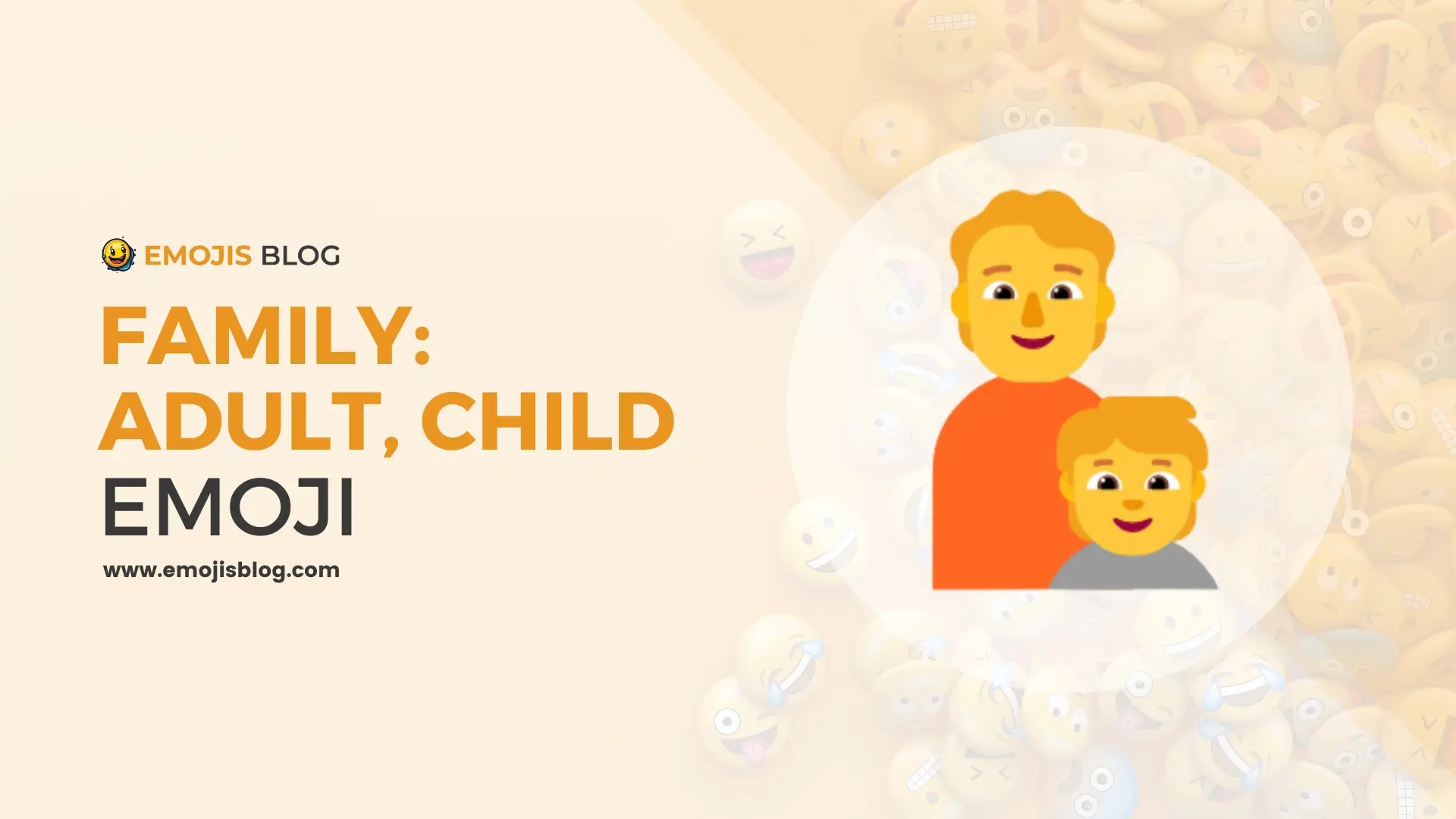What Does The Family: Adult, Child Emoji 🧑🧒 Mean?
🧑🧒
Family: Adult, Child Emoji 🧑🧒 Meanings
The Family: Adult, Child emoji 🧑🧒 depicts a single adult figure standing alongside a child, symbolizing family units consisting of one adult and one child. This emoji is commonly used to represent single-parent families, guardianship scenarios, or any situation where an adult is caring for a child, emphasizing the diversity of modern family structures. It conveys themes of love, care, and familial bonds in digital communication, and is often used in discussions about parenting, family events, and the special relationship between an adult and a child.
Technical Information
| Attribute | Details |
|---|---|
| Unicode | U+1F9D1 U+200D U+1F9D2 |
| Emoji Version | 12.0 |
| Introduced in Unicode | 12.0 |
| Code Points | 🧑 (U+1F9D1), Zero Width Joiner (U+200D), 🧒 (U+1F9D2) |
| Description | An adult with a child. |
| Category | People & Body |
| Subcategory | Family |
| Skin Tone Modifiers | Yes |
| Gender Variants | No |
| Related Emojis | 👨👧 (Man, Girl), 👩👦 (Woman, Boy) |
| Shortcode | :adult_child: |
| Platforms Supported | iOS, Android, Windows, macOS, Linux, Web |
Understanding the Family: Adult, Child Emoji 🧑🧒
The family emoji series is a rich and diverse set of symbols that depict different family structures and relationships. Among these, the Family: Adult, Child emoji 🧑🧒 stands out for its unique representation of a single adult with a child. This article delves into the meaning, usage, variations, and cultural significance of this emoji.
What is the Family: Adult, Child Emoji?
The Family: Adult, Child emoji 🧑🧒 portrays a single adult figure standing alongside a child. It is part of the broader family emoji category, which includes various combinations of adults and children to represent different family configurations. The emoji is designed to be inclusive, capturing the essence of single-parent families or guardianship scenarios.
The Meaning Behind the Emoji
Representation of Family Structures
The Family: Adult, Child emoji is primarily used to symbolize families consisting of one adult and one child. This can represent single-parent families, a guardian with their ward, or any scenario where an adult is caring for a child. It highlights the diversity of family units beyond the traditional two-parent household.
Emotional and Contextual Usage
Users often employ this emoji to convey love, care, and the bond between an adult and a child. It can be used in discussions about parenting, family events, or in conversations that emphasize the relationship between an adult and a child. It serves as a digital representation of familial affection and responsibility.
Variations of the Family Emoji
The family emoji series is highly versatile, offering a range of combinations to depict different family structures. Variations include:
- Two Adults with One or More Children: Representing traditional nuclear families.
- Single Adult with Multiple Children: Highlighting single-parent households with more than one child.
- Same-Gender Families: Inclusively representing LGBTQ+ families.
Each variation is designed to be inclusive, allowing users to choose the emoji that best represents their family structure.
Cultural Significance
Inclusivity in Digital Communication
The inclusion of the Family: Adult, Child emoji is a step towards recognizing and validating the diverse forms of families that exist in society. It acknowledges single-parent families and their importance, providing a way for these family units to be represented in digital communication.
Social Media and Messaging
On social media and in messaging apps, the Family: Adult, Child emoji is frequently used to share moments from family life, discuss parenting topics, and express the unique bond between a parent (or guardian) and a child. It helps in fostering a sense of community and shared experiences among users with similar family dynamics.
How to Use the Family: Adult, Child Emoji
In Conversations
- Parenting Discussions: Use the emoji when talking about parenting experiences or challenges.
- Family Announcements: Ideal for sharing news related to family events or milestones.
- Emotional Support: Conveying support and love in conversations with single parents or guardians.
On Social Media
- Photo Captions: Perfect for captions on photos featuring a single parent and child.
- Storytelling: Enhancing narratives about family life and the bond between an adult and a child.
- Advocacy: Promoting discussions about the diversity of family structures and advocating for single-parent families.
Conclusion
The Family: Adult, Child emoji 🧑🧒 is a powerful symbol that enriches digital communication by representing a single adult with a child. Its inclusion in the emoji family highlights the importance of recognizing diverse family structures and provides a means for users to express the unique relationships within these families. Whether used in messaging apps, social media, or advocacy, this emoji helps foster understanding and inclusivity in our digital interactions.

